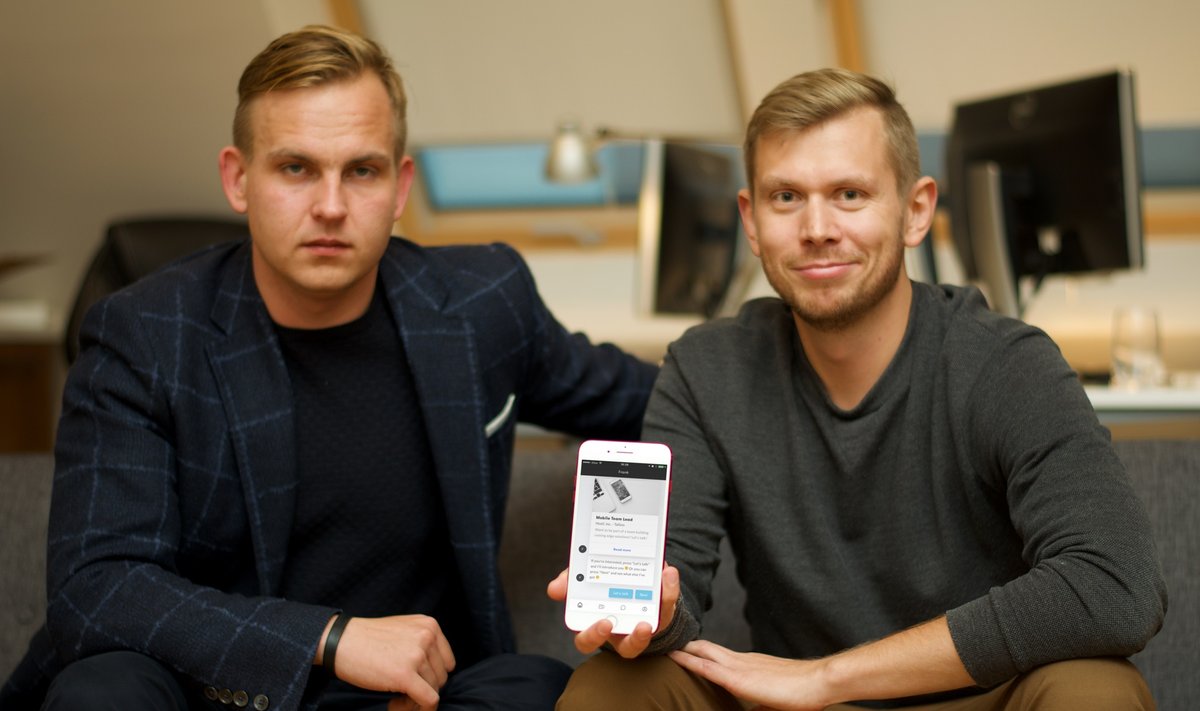"Lithuania is a perfect example of how such an app is in great demand. We only started to operate here in late March and have already attracted over 50 thousand Lithuanian users, which accounts for more than a third of overall users. It was noticed that about a fifth of registered users are active job seekers, while the rest are employed although open to new proposals, which is the main goal of the app, namely to give the opportunity to observe the job market without risking to lose one's current position", says Kaarel Holm, the co-founder, and CEO of MeetFrank.
Investors are in unanimous agreement about the app's perspectives, as venture capital funds "Hummingbird VC", "Karma VC" and "Change Ventures" invested 1 million Euros in the start-up from Estonia. The investment will be used for the already initiated expansion into Western European markets, since as of early July „MeetFrank" already began their operations in Germany. K. Holm predicts, that after Brexit, Berlin will be the new start-up and tech hub in Europe, which is exactly where the company is planning to open their new office.
"MeetFrank" is currently also operating in Estonia, Finland, Sweden and Latvia. The application has over 125 thousand active users and over 2 thousand corporate customers, including companies such as "Swedbank", "Luminor", "SEB", "Danske Bank", "Uber", "Tieto", "AdForm", "Telia", who use it to seek employees.
The app enables professionals from a variety of industries to inspect their market value and find a new job anonymously. The employers see it as a handy and effective tool in the search for the most qualified employees.
Upon downloading the application from the "App Store" or "Google Play", users are encouraged to sign up and answer a few questions on their current job position, salary and expectations for the new employer. The app then analyses the data and proposes suitable job advertisements, which the user can either show interest in and continue communicating with the employer privately or pass. The advertisements are paid for by the employing companies, while for users, the entire service is free.
